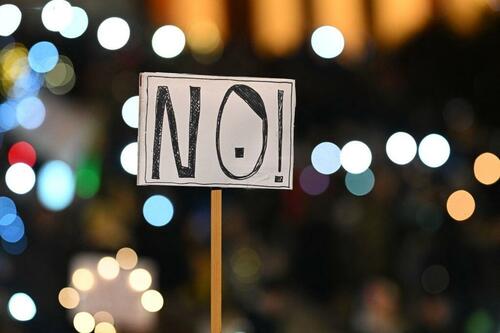
Authored by Jeff Minick via The Epoch Times,
Thomas Jefferson proclaimed “all men are created equal” as a self-evident truth, but was a slaveholder. Ulysses S. Grant led the Northern armies to victory in the Civil War, but was a long-time alcoholic and also far too trusting of others, a fault that damaged his reputation and left him bankrupt at the end of his life. George Patton is recognized as one of our nation’s most brilliant generals, but possessed an explosive temper and a gutter vocabulary to go with it.
All of these figures are flawed heroes, as are all the other great men and women from our past. The reason for this is simple: Heroes spring from the same clay as the rest of us, and to be human is to be flawed.
Most of us accept small imperfections in others and in ourselves as part and parcel of the human package.
Marriages and friendships survive, and are often enriched, by turning a blind eye to another’s shortcomings or making it a subject for gentle teasing.
In the broader arena of public affairs, most of us follow this same route of discernment when supporting certain politicians. They draw us to their cause by their words and deeds, and though we see their weaknesses and defects, we cut them some slack. We deem their deeds greater than their defects. As for those politicians we oppose, our enmity should ideally derive from the programs they have proposed or from their voting records rather than from the half-truths conveyed via the news. Common decency demands we exercise wisdom and prudence in reaching our conclusions.
Unfortunately, American politics has become a battleground of mudslinging and defamation.
Both private citizens and those prominent in the public arena, including certain members of the media, tag those they consider their political enemies with derisive nicknames or broad labels, like sexist, fascist, or racist. They slap these often baseless smears onto an enemy hoping they will stick and so silence their opponent and shame their supporters. There’s no middle ground, no nuanced reflections, only the desire to attack and destroy.
A penchant for vilification has poisoned our politics. Worst, it is corrupting our morals.
When we call our opponents Nazis or libtards, deplorables or snowflakes, or any of the other often groundless insults making the rounds these days, we objectify those people, stripping them of their humanity. Though we may not realize it, by diminishing them we diminish ourselves.
Totalitarians use this tactic of the smear all the time to create a scapegoat or to divide a population.
The Nazis dehumanized Jews by depicting them as vermin. Soviet propaganda labeled middle-class farmers as kulaks, a word meaning “fist,” and depicted them in posters as fat and avaricious enemies of the state. The Chinese communist Cultural Revolution savaged tradition, intellectuals, and the middle class, and led to the death of millions.
Our country is entering what will certainly become a nastier and even more acrimonious battle of charges and countercharges. Leaders and commentators who practice this totalitarian strategy, who flag entire groups of people by some derogatory name or who defame individuals with lies and absurd labels, deserve neither our respect nor support.
By no means does this mean that we must yield on our principles or our causes.
If anything, when this dangerous totalitarian tool of the smear is brought into play, we should stand even more steadfast for our beliefs. We must never surrender to these glib and ugly attacks on our basic principles.
In the wake of the assassination attempt on former President Donald Trump, some of our leaders have called for lowering the heated rhetoric that has marked our national conversation. We’ll soon see whether they’ll practice what they preach.
In the meantime, we ourselves, you and I, can refuse to engage in the vicious name-calling and slurs that are tearing apart our country.
Authored by Jeff Minick via The Epoch Times,
Thomas Jefferson proclaimed “all men are created equal” as a self-evident truth, but was a slaveholder. Ulysses S. Grant led the Northern armies to victory in the Civil War, but was a long-time alcoholic and also far too trusting of others, a fault that damaged his reputation and left him bankrupt at the end of his life. George Patton is recognized as one of our nation’s most brilliant generals, but possessed an explosive temper and a gutter vocabulary to go with it.
All of these figures are flawed heroes, as are all the other great men and women from our past. The reason for this is simple: Heroes spring from the same clay as the rest of us, and to be human is to be flawed.
Most of us accept small imperfections in others and in ourselves as part and parcel of the human package.
Marriages and friendships survive, and are often enriched, by turning a blind eye to another’s shortcomings or making it a subject for gentle teasing.
In the broader arena of public affairs, most of us follow this same route of discernment when supporting certain politicians. They draw us to their cause by their words and deeds, and though we see their weaknesses and defects, we cut them some slack. We deem their deeds greater than their defects. As for those politicians we oppose, our enmity should ideally derive from the programs they have proposed or from their voting records rather than from the half-truths conveyed via the news. Common decency demands we exercise wisdom and prudence in reaching our conclusions.
Unfortunately, American politics has become a battleground of mudslinging and defamation.
Both private citizens and those prominent in the public arena, including certain members of the media, tag those they consider their political enemies with derisive nicknames or broad labels, like sexist, fascist, or racist. They slap these often baseless smears onto an enemy hoping they will stick and so silence their opponent and shame their supporters. There’s no middle ground, no nuanced reflections, only the desire to attack and destroy.
A penchant for vilification has poisoned our politics. Worst, it is corrupting our morals.
When we call our opponents Nazis or libtards, deplorables or snowflakes, or any of the other often groundless insults making the rounds these days, we objectify those people, stripping them of their humanity. Though we may not realize it, by diminishing them we diminish ourselves.
Totalitarians use this tactic of the smear all the time to create a scapegoat or to divide a population.
The Nazis dehumanized Jews by depicting them as vermin. Soviet propaganda labeled middle-class farmers as kulaks, a word meaning “fist,” and depicted them in posters as fat and avaricious enemies of the state. The Chinese communist Cultural Revolution savaged tradition, intellectuals, and the middle class, and led to the death of millions.
Our country is entering what will certainly become a nastier and even more acrimonious battle of charges and countercharges. Leaders and commentators who practice this totalitarian strategy, who flag entire groups of people by some derogatory name or who defame individuals with lies and absurd labels, deserve neither our respect nor support.
By no means does this mean that we must yield on our principles or our causes.
If anything, when this dangerous totalitarian tool of the smear is brought into play, we should stand even more steadfast for our beliefs. We must never surrender to these glib and ugly attacks on our basic principles.
In the wake of the assassination attempt on former President Donald Trump, some of our leaders have called for lowering the heated rhetoric that has marked our national conversation. We’ll soon see whether they’ll practice what they preach.
In the meantime, we ourselves, you and I, can refuse to engage in the vicious name-calling and slurs that are tearing apart our country.
Loading…





